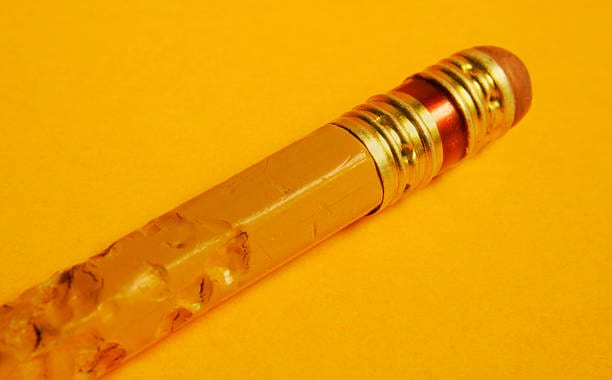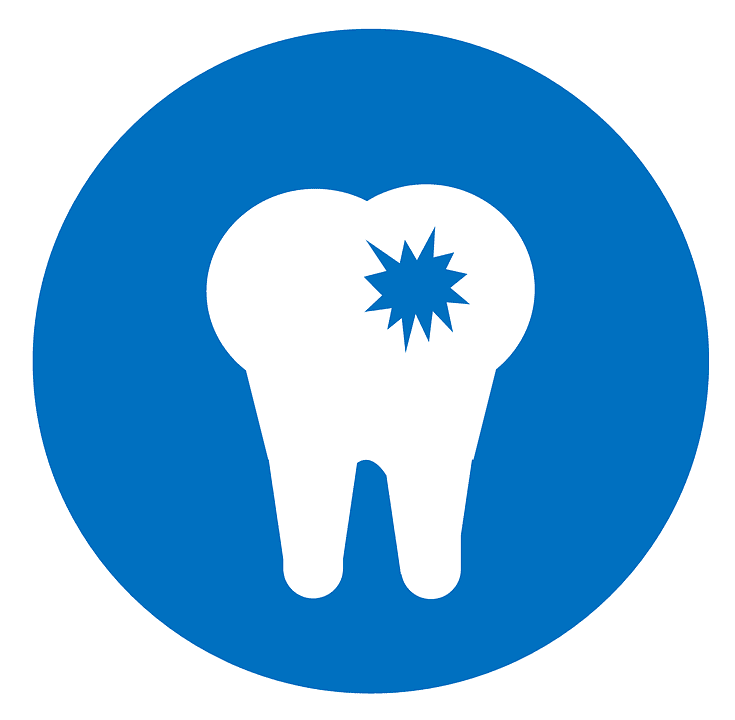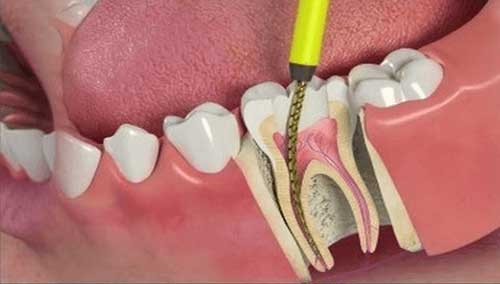8 Bad Oral Habits To Stop Immediately

Bad habits can easily become part of who we are, but they can also really hurt us. When our bad habits affect our oral health, the results can be painful for our mouths and our wallets. Here is a list of the worst habits that can harm your mouth and should be avoided as much as possible. Smoking Smoking is one of the most destructive habits, as it not only causes discoloration of the teeth and bad breath, but can result in loss of bone density in the jaw, inflamed salivary glands, as well as gum disease, and oral cancer. Thumb Sucking Children who suck their thumbs are constantly placing pressure on their mouths and run the risk of misaligning their new adult teeth and even causing deformities in the roof of the mouth. Brushing Too Hard Vigorous brushing can irritate gums, which can cause them to recede, and can erode tooth enamel. Signs of aggressive brushing are if your toothbrush bristles are splayed and worn down. Bristles should only lightly brush against teeth and gums without causing redness. Clenching and Grinding Teeth grinding can erode enamel and can leave teeth exposed to decay. Jaw clenching can cause issues such as pain and discomfort that can lead to lockjaw and cracked and chipped teeth. Crunching Ice Our teeth are not designed for crunching ice and doing so can cause teeth to crack or chip. Grinding ice against teeth can cause your teeth to crack and chip, as well as damage the tooth enamel. Wearing down your tooth enamel leaves your teeth more susceptible to decay and it can increase their temperature sensitivity. Using Teeth as Tools Using your teeth to open containers, cut clothing tags, and rip through packages can result in cracks and chips, which can leave teeth exposed and unprotected against tooth decay. Biting Your Nails Biting your nails can damage your teeth and any past dental work, as well as expose your mouth to the bacteria that lives under nails, increasing your chances of illness and infection. Nail biting could also result in a chipped or cracked tooth. High Sugar Consumption Constantly exposing your teeth to destructive sugars, such as those found in carbonated drinks, feeds harmful bacteria and causes plaque to be produced at a much quicker rate in the mouth. Without proper dental hygiene, this plaque then turns into difficult to remove tartar, which can cause tooth and gum decay. Biting and Chewing Foreign Objects Food should be the only thing you hold in your mouth. Chewing on pencils or biting the arms of your reading glasses can damage past dental work and crack or chip your teeth. Constantly doing this can wear down teeth and make them more susceptible to damage and decay. Replacing missing or broken teeth is expensive and stressful, so if you listen to these tips, follow them every day, and take your dentist’s advice you’ll be happier for it in the long run and have a healthy mouth and smile.
Facts and Myths about Cavities

By the time we are able to brush our teeth on our own, most of us can remember being told about cavities. If you have ever needed a filling or other dental work, you may know a bit more about cavities than someone who is yet to have the experience. However, there are still some misconceptions about how we get them and what you should do about a cavity. Here are some common myths that surround cavities and the reality behind these misconceptions: Myth: If my teeth don’t hurt, nothing is wrong. Fact: By the time a tooth begins to hurt, it means the cavity and tooth decay has gone deep into the tooth and is now irritating the nerve. The longer you leave an issue, the more complex and expensive the treatment will be. Therefore, regular checkups are necessary to catch dental issues before they become extensive. Waiting for there to be an issue in the mouth before going to the dentist can mean the difference between a simple filling and a root canal. Myth: Sugar-free soda can’t cause cavities. Fact: Sugar is a huge contributor to the cause of cavities, as it creates a food source for harmful bacteria in the mouth, but it is not the only contributor. Anything that makes your mouth more acidic, such as diet sodas, can cause erosion. The harmful bacteria metabolize the sugar or acids left on your teeth and excrete lactic acid that creates small holes in tooth enamel. Myth: With good dental care, teeth can repair their own tooth enamel (remineralisation). Fact: Experts have said that teeth can replace some of the minerals that its enamel has lost. This process is called remineralisation and can slow or even stop decay. However, once bacteria and decay get through that enamel, the damage is done, and the erosion can not be reversed. The cavity has to be treated or it will continue to erode away at the tooth until it reaches the nerve. The nerve will eventually die. Depending on how long you leave a cavity, you could be looking at needing a root canal or a tooth removal. Myth: A filling is forever and can not get cavities. Fact: Although fillings can last for over a decade, they do eventually wear and break down. Tooth decay can not affect a filling but it can set in to the tooth around the edges of a filling or underneath the filling if it is broken. Myth: Cavities are for kids Fact: Anyone who has poor dental hygiene and consumes a lot of sugary food stuffs is at risk of developing cavities. Saliva is a natural buffer to all the acids in your mouth, so adults who smoke or take medications that cause dry mouth are at an even greater risk, as they have low saliva production. There is always a risk of developing a cavity, whether you are 6 or 76 years old. The important thing is to look after your dental health through daily care and regular dentist visits. At East Mountain Dental, you can be sure to get great dental care. Contact our Provo office today.
What is Endodontics?

Endodontics is the branch of dentistry that focuses on the care, diagnosis and treatment of dental pulp and tissues surrounding the roots of a tooth. What is Dental Pulp? Dental pulp sits inside your tooth, covered by layers of specialized bone, connective tissue and enamel. Our dental pulp is filled with blood vessels and nerves that connect the tooth through its roots to the rest of the mouth. Why is Endodontics Important? It is important to keep the dental pulp of a tooth healthy because it is responsible for the blood flow to the tooth, the creation of one of the layers of the tooth (dentin), and provides a sensory function, such as a reaction to differences in temperature. The infection and decay of dental pulp can lead to severe pain and the death/removal of the tooth. What Procedures Does an Endodontist Handle? Endodontists perform root canal treatments, address traumatic dental injuries, and place dental implants. The real goal is to save your natural teeth, but if this is not possible, an endodontist will look for the best course of action to preserve and restore your dental health. When To See An Endodontist? If you’re experiencing tooth pain, have injured your tooth, experience extreme sensitivity to hot or cold food items, and/or have swelling around the teeth, gums or face, then you should make an appointment to see your dentist. Your dentist may then refer you to an endodontist for specialized treatment. Trust in East Mountain Dental’s Endodontics At East Mountain Dental, we are able to evaluate and treat your endodontic-related problems. By saving your tooth, we can help you keep your smile as natural as possible, which allows you to continue eating your favorite foods and maintain your overall dental health.
